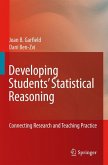Norman G. Lederman I remember moving into my graduate student office at Syracuse University in 1979 as if it was yesterday. Directly across the hall was another graduate student office with the door closed. On the door was an index card with the following quote: Nothing happened in 1945 except that we changed the scale of our indifference to man; and conscience, in revenge, for an instant became immediate to us. Before the immediacy fades in a sequence of televised atomic tests, let us acknowledge our subject for what it is: civilization face to face with its own implications. The implications are both the industrial slum which Nagasaki was before it was bombed, and the ashy desolation which the bomb made of the slum. And 1 civilization asks of both ruins, 'Is You Is Or Is You Ain't Ma Baby?' The quotation focused around an individual's viewing and reaction to the destruction in Nagasaki following the dropping of a nuclear bomb. The quote was from Bronowski's Science and Human Values and it was pasted to the door of Dana Zeidler's office. What goes around comes around in educational circles and I was unavoidably reminded of the quotation on Dana's door when reading this volume in preparation for the writing of this Foreword. I am not simply reminiscing about my first day as a PhD student, but rather I think the Bronowski quote cuts to the core of the text you are about to read.
Bitte wählen Sie Ihr Anliegen aus.
Rechnungen
Retourenschein anfordern
Bestellstatus
Storno








